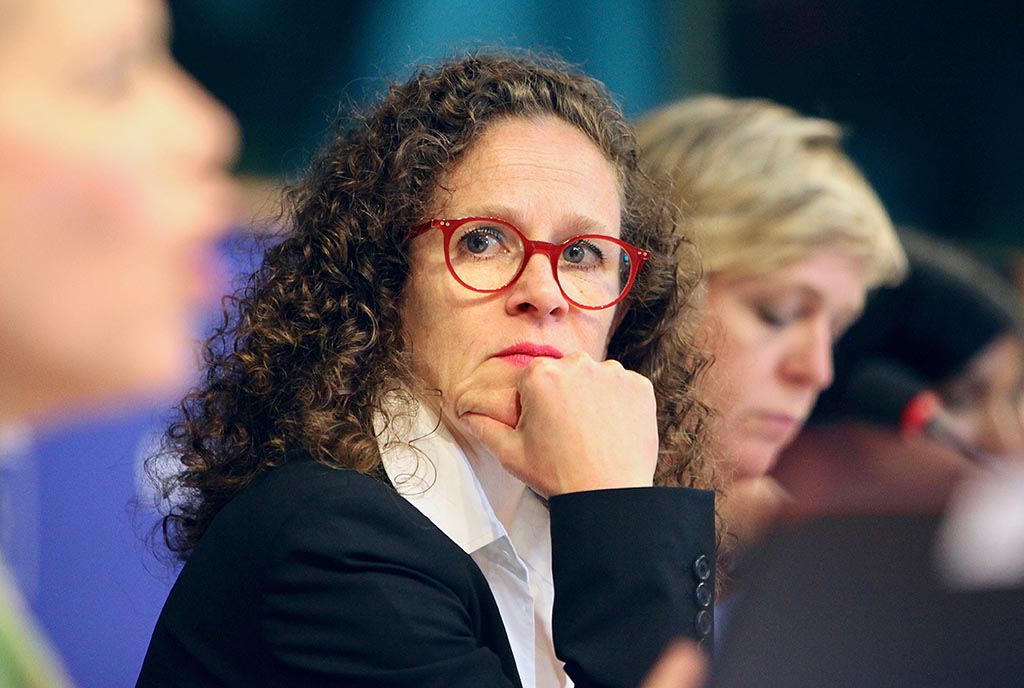MEP Dr Milan Zver and MEP Romana Tomc addressed a warning to Sophie in ‘t Veld, head of the delegation of the European Parliament’s Committee on Civil Liberties, Justice, and Home Affairs for fact-finding in Slovenia, in connection with a letter addressed to the mayors of all Slovenian municipalities sent by the Slovenian Parliamentary Commission of Inquiry, which was supposed to investigate alleged illegal financing of a political campaign before the parliamentary elections.
In the letter, Milan Zver and Romana Tomc point out that the investigative commission focuses only on some small, local media and those media that are critical of the current government, which can be equated with an attempt to limit media freedom and media plurality and with an obvious and a deliberate attempt to prevent the financing of the media in Slovenia, which are more right-wing/conservative oriented.
“I am addressing you with a warning in connection with the letter addressed to the mayors of all Slovenian municipalities by the Slovenian parliamentary investigative commission, which is supposed to be investigating the alleged illegal financing of a political campaign before the parliamentary elections. With the aforementioned letter, the president of the investigative commission, journalist and member of parliament Mojca Pašek Šetinc, who just before the April parliamentary elections began to appear as a candidate for the member of parliament of the left-leaning Gibanje Svoboda party, requested from all Slovenian mayors all business documentation related to the possible conclusion of advertising contracts or changes already of concluded advertising contracts, which are kept by municipalities in connection with advertising in specially selected Slovenian media”, wrote Milan Zver.
Did the “disobedient media” find themselves on the infamous list of the commission of inquiry because of their ideological orientation?
The letter also states that it is extremely controversial that this type of documentation collection and investigation by the investigative commission does not apply to all media, but only to selected ones, including the weekly Demokracija, the television Nova24TV and some of the portals connected to them, as well as the news aggregate vsenovice.info, the Požareport portal, and a number of local portals that are illustratively close to the centre-right or express a critical attitude towards the government of Robert Golob. “I estimate that the mentioned media found themselves on this infamous list of the investigative commission because of their ideological orientation and criticism of the current government, and that this is actually a vindictive list.”
One of the examinees, who is one of the leading Slovenian investigative journalists, warns that this political persecution against specially selected journalists could be the result of revelations about the opaque and questionable financing of the media and persons close to the ruling Gibanje Svoboda party.
What Pašek Šetinc is doing is completely contrary to the Resolution on strengthening media freedom
In November 2020, the European Parliament adopted a Resolution on strengthening media freedom, in which the protection of journalists in Europe, hate speech, disinformation and the role of various social platforms are specifically highlighted. Among other things, the European Parliament called on the Commission to treat the actions of member state governments that attempt to harm media freedom and pluralism as a serious and systematic abuse of powers and as actions that are in conflict with the fundamental values of the EU from Article 2 of the CEU. “MP Mojca Pašek Šetinc is not part of the government, but she is part of the government coalition. Mrs. Pašek Šetinc is a member of the Gibanje Svoboda party, the largest government party, an important part of the government coalition. This type of collection of documentation on advertising in individual, carefully selected media is completely contrary to the aforementioned Resolution and, in our opinion, has only one purpose: to limit the plurality of media and ensure a media landscape that will be uniformly favourable to the current government”.
Zver also reminded Sophie in ‘t Veld of the statement of the European Commissioner for Values and Transparency, Vera Jourova, which she made in January 2022 at the announcement of a public consultation on the future European Act on Media Freedom: “The media is a pillar of democracy. Recently, this pillar has been crumbling as governments and private groups try to put pressure on the media. The Commission will therefore propose common rules and safeguards to protect the independence and plurality of the media. Journalists should be able to carry out their work impartially and without fear, inform citizens and hold leaders accountable. We want to arrive to the best proposal through a general consultation.”
Actions of Pašek Šetinc make a mockery of all the efforts of the EP and the EC to protect the freedom and autonomy of the media
The letter that the president of the investigation commission, Mojca Pašek Šetinc, addressed to all the mayors of Slovenian municipalities and which I am attaching, is thus a mockery of all the efforts of both the European Parliament and the European Commission in protecting the freedom and autonomy of the media. The aforementioned official investigative actions of the commission of inquiry, which in its investigation focus only on some smaller, local media and those media that are critical of the current government, can be equated with an attempt to restrict media freedom and media pluralism and with an obvious and deliberate attempt to prevent financing of those few small and, on the whole, fairly unimportant media in Slovenia, which are more right-wing/conservative oriented.
In the end, Zver and Tomc asked in ‘t Veld to study the letter carefully and, knowing the situation in Slovenia, which she discovered on the mission in Slovenia over a year ago, decide on it.
Sara Kovač


